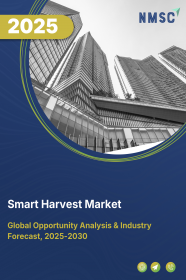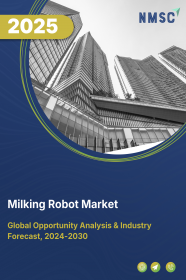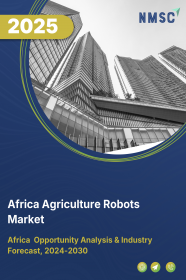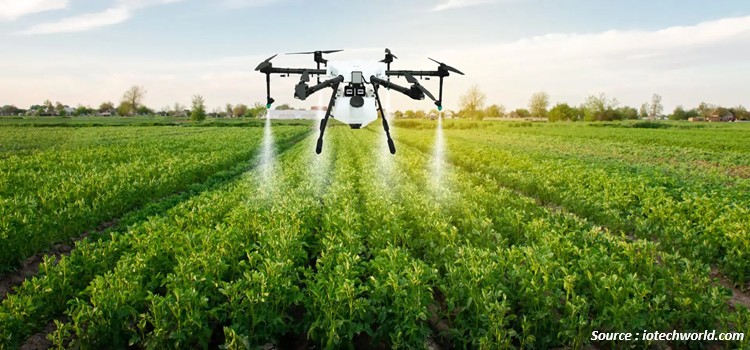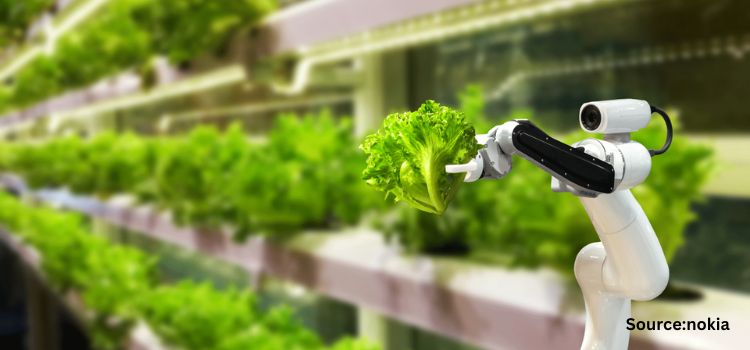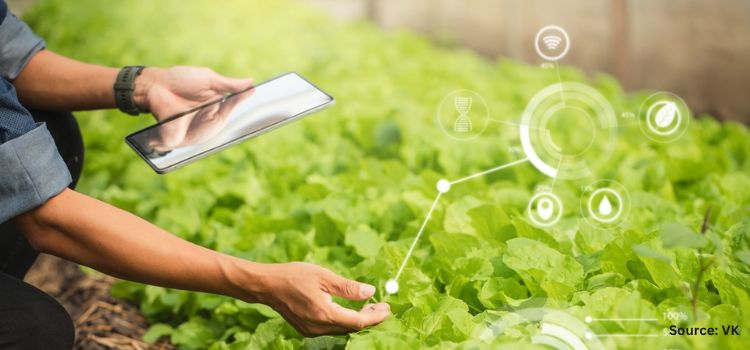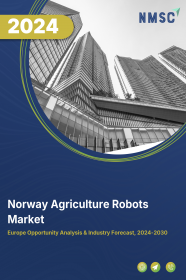
Norway Agriculture Robots Market by Type (Driverless Tractors, Unmanned Aerial Vehicles (UAVs), Milking Robots, Automated Harvest Robots, and Others), Offering (Hardware, Software, and Services), Farming Type (Indoor Farming and Outdoor Farming), Application (Dairy Management, Irrigation Management, Harvest Management, Soil Management, Inventory Management, and Others), and End User (Field Crops, Fruits & Vegetables, Livestock, and Others) – Opportunity Analysis and Industry Forecast 2023–2030
Industry: Agriculture | Publish Date: 30-Nov-2024 | No of Pages: 88 | No. of Tables: 73 | No. of Figures: 31 | Format: PDF | Report Code : AG627
Norway Agriculture Robots Market Overview
Norway Agriculture Robots Market size was valued at USD 18.46 million in 2022 and is predicted to reach USD 80.89 million by 2030, with a CAGR of 19% during the forecast period, 2023–2030. Agricultural robots are machines that perform tasks in the field of agriculture, such as planting, harvesting, monitoring, and spraying crops. They are designed to improve efficiency, productivity, and accuracy in agriculture while reducing the dependence on manual labor and enhancing working conditions for farmers. Agricultural robots utilize advanced technologies such as computer vision, artificial intelligence (AI), and others.
Agribots are equipped with sensors, actuators, and intelligent algorithms that allow them to perceive their environment, make decisions, and carry out specific actions. The robot can navigate through fields using GPS or mapping technologies, and it can perform a variety of tasks, including planting seeds, harvesting crops, applying pesticides or fertilizers, and monitoring crop health. They use computer vision to identify and differentiate between crops and weeds, and they can detect pests or diseases. Agribots help farmers to improve the efficiency, productivity, and sustainability of their operations.
Addressing Labor Shortages through Agricultural Robotics
The necessity for labor efficiency and cost reduction drives the need for an agricultural robots market in Norway. The availability and price of human labor pose issues in the agriculture industry, making automation an appealing alternative. Agricultural robots can execute a variety of activities with accuracy, eliminating the need for manual labor and lowering operating expenses.
Adoption of Smart Agriculture Practices in Norway
The adoption of smart agriculture practices in Norway has been a key driver in increasing farm production and efficiency. As farmers strive to maximize their yields and optimize resource management, they are increasingly turning to advanced technologies, including agricultural robots, as part of their agricultural operations. Thus, it is expected to boost the growth of the market in the country.
High Initial Investment in Agriculture Robots
In Norway, the considerable upfront expenses involved in acquiring agricultural robots can present a significant obstacle for farmers, particularly those operating on a smaller scale. The costs associated with purchasing, maintaining, and integrating the required robotics technology and equipment can be prohibitively high, thereby impeding the widespread adoption of such systems among farmers who may lack the financial means to make such investments. As a result, this factor is anticipated to restrict the expansion of the agricultural robots market within the country.
Technological Advancements in the Agricultural Sector
In Norway, advancements in technology such as AI, machine learning, and robotics are set to benefit the agriculture sector. Agricultural robots are becoming smarter, more capable, and efficient, offering opportunities for precision tasks such as planting, monitoring, weed detection, and harvesting. These advancements hold promising prospects for increased productivity and sustainable farming practices in Norway. Thus creating ample opportunity for the agriculture robots market within the country.
Competitive Landscape
The agriculture robots industry includes several market players such as Agrobot, Auro AI, Digi-Farm, FarmBot, Nomadic Robotics, Probot OY, Blue Ocean Robotics, OnRobot, AgTech Innovation, and Autonomous Marine Systems.
Key Benefits
-
The Norway agriculture robots market report provides a quantitative analysis of the current market and estimations through 2023-2030 that assists in identifying the prevailing market opportunities to capitalize on.
-
The study comprises a deep dive analysis of the market trend including the current and future trends for depicting the prevalent investment pockets in the market.
-
The information related to key drivers, restraints, and opportunities and their impact on the market is provided in the report.
-
The competitive analysis of the market players along with their market share in the Norway agriculture robots market.
-
The SWOT analysis and Porter’s Five Forces model are elaborated in the study.
-
Value chain analysis in the market study provides a clear picture of the stakeholders’ roles.
Norway Agriculture Robots Market Key Segments
By Component
-
Driverless Tractors
-
Unmanned Aerial Vehicles (UAVs)
-
Milking Robots
-
Automated Harvest Robots
-
Others
By Offering
-
Hardware
-
Software
-
Services
By Farming Type
-
Indoor Farming
-
Outdoor Farming
By Application
-
Dairy Management
-
Irrigation Management
-
Harvest Management
-
Soil Management
-
Inventory Management
-
Others
By End User
-
Field Crops
-
Fruits & Vegetables
-
Livestock
-
Others
Key Players
-
GEA Group
-
CNH Industrial
-
Delaval
-
Deere & Company
-
AGCO Corporation
-
Trimble Inc.
-
Naio Technologies
-
Yanmar Holdings Co. Ltd.
-
SZ DJI Technology Co. Ltd.
-
Boumatic
-
Harvest Automation Inc
-
Autonomous Solution Inc
-
Clearpath Robotics
-
Ageagle Aerial System
-
Kubota Corporation

















 Speak to Our Analyst
Speak to Our Analyst



